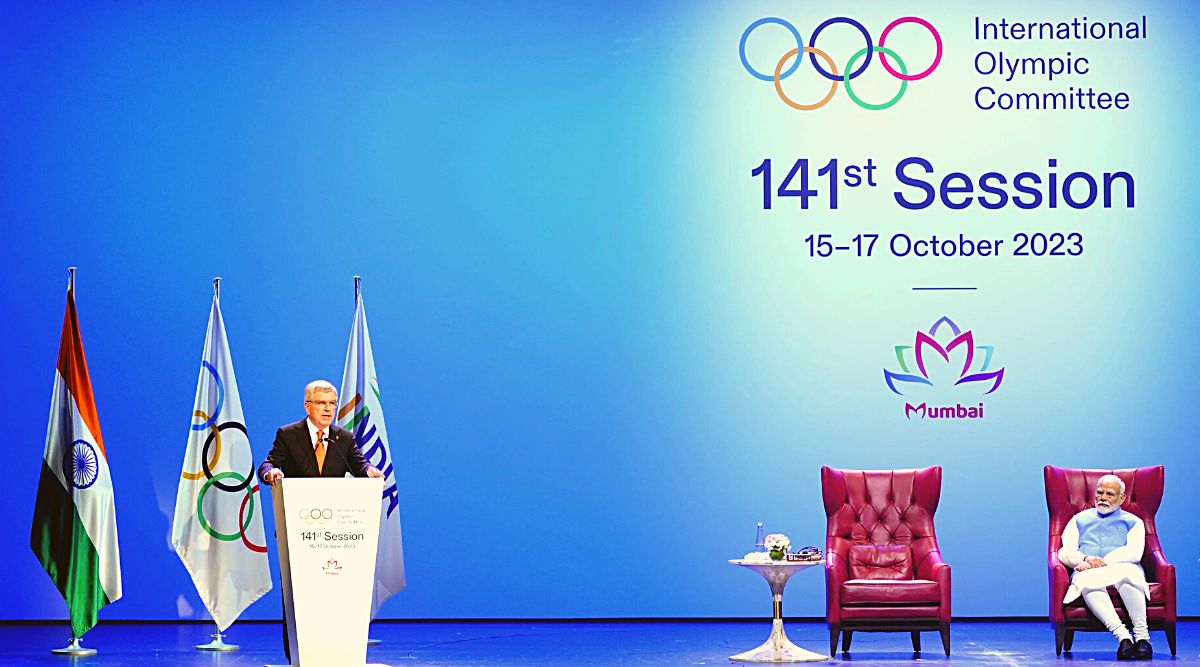October 19, 2023
India’s Bid to Host the 2036 Olympics: Balancing Ambition and Fiscal Prudence

Introduction
- Recently, Prime Minister Modi confirmed India’s formal bid to host the 2036 Olympic Games, sparking discussions on the financial implications and potential benefits of staging this prestigious event. Hosting the Olympics is a monumental undertaking that involves significant expenditure and meticulous planning. This reframed article delves into the historical origins of the Olympics, the process of selecting a host city, the costs involved, funding mechanisms, and the worth of hosting the Games. It also evaluates India’s prospects for hosting the 2036 Olympics.
The Olympics: A Historical Overview
Origins
- The Olympic Games trace their roots back to ancient Greece, commencing in 776 BCE in Olympia, as a celebration of athletic prowess and camaraderie.
Revival
- Pierre de Coubertin rekindled the Olympic flame in 1896, with Athens, Greece, playing host to this renaissance of international sporting competition.
Symbolism: Five Rings and Motto
- The Olympic flag, adorned with five interlocking rings, symbolizes unity among the five continents. The motto, “Citius, Altius, Fortius” (Faster, Higher, Stronger), encapsulates the enduring pursuit of excellence.
Diverse Sporting Events
- The Olympics encompass a diverse array of sports, ranging from athletics and swimming to archery and gymnastics. Over the years, certain sports like tug of war and live pigeon shooting have been discontinued.
Selecting the Olympics Host City
International Olympic Committee’s Decision
- The host city is determined by a secret ballot among the members of the International Olympic Committee (IOC), with the majority vote bestowing the honor.
Competition and Diplomacy
- Securing the privilege of hosting the Olympics demands substantial financial investment and diplomatic overtures. Typically, the winning city is announced 7-8 years prior to the event.
The Financial Landscape of Hosting the Olympics
An Expensive Endeavor
- Bidding for the Olympics is a costly endeavor, with countries often expending between $50-100 million, even for unsuccessful bids. In the case of a successful bid, expenses can skyrocket into the billions.
Examples of Expenditure
- Tokyo, for instance, spent $150 million for its unsuccessful 2016 bid and considerably more for its victorious 2020 bid. Toronto chose not to bid for the 2024 Games due to the hefty $60 million cost.
Infrastructure Investment
- Hosting the Olympics necessitates the construction of stadiums and extensive enhancements to infrastructure to accommodate athletes and visitors.
Funding the Olympics: Balancing the Budget
Local Government Responsibility
- The lion’s share of expenses, particularly those associated with infrastructure, is borne by the local government and integrated into the national budget.
Borrowing for Cost Overruns
- Countries often resort to borrowing to cover cost overruns. While the IOC contributes some revenue to the host country, it constitutes a relatively modest amount, as exemplified by the $1.5 billion contributed to Rio De Janeiro in 2016.
Assessing the Value of Hosting the Olympics

Benefits of Hosting
- Playing host to the Olympics elevates a country’s global standing and positions it as an attractive investment and tourist destination.
Cautions on Overspending
- Excessive expenditure can yield dire consequences, as witnessed with Canada’s 30-year debt following the 1976 Montreal Games, the impact on Greece during the financial crisis after the 2004 Athens Olympics, and Rio’s $900 million bailout request from the Brazilian government.
Positive Outcomes
- In certain instances, such as Beijing, hosting the Olympics led to a notable acceleration of GDP growth, by at least 0.8%.
India’s Prospects: A Strategic Bid
Favorable Timing
- India’s bid aligns remarkably well with its status as the world’s most populous and fastest-growing major economy.
Past Hosting Experience
- With successful hosting of the 1982 Asian Games and the 2010 Commonwealth Games, India boasts a favorable track record, a factor closely considered by the IOC.
Gujarat’s Ascent
- Gujarat’s contemplation of bidding for the 2026 Commonwealth Games further underscores India’s hosting capabilities.
Economic Prowess
- India’s ascent as an economic powerhouse enhances the appeal of its candidacy to other nations.
Conclusion
- India’s bid to host the 2036 Olympics is an opportunity to enhance its global profile and stimulate economic growth. However, it is imperative to strike a balance between ambition and fiscal prudence. A thorough evaluation of the economic implications, both positive and negative, is crucial to ensure that the investment yields substantial, long-term benefits for the nation.
January 30, 2025
January 20, 2025
January 14, 2025
